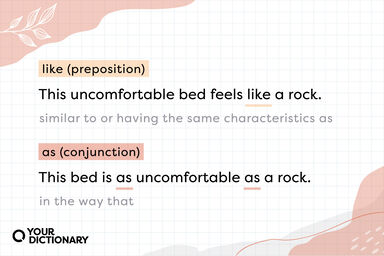When you are out and about, traveling to new places, it feels pretty good to know a few words in the local tongue, doesn't it? It's like having a little secret key that opens up conversations and helps you connect with people. You might find yourself needing to talk about all sorts of things, from asking for directions to simply saying hello. Learning some basic words, you know, it can really make your trip feel a bit more comfortable and a lot more fun, too it's almost a necessity for a smooth experience.
One of those truly helpful words, a real staple for anyone moving from one spot to another, is the one for your travel bag. That thing you carry your clothes and bits and pieces in. Knowing how to talk about your luggage, or your "suitcase," as many people call it, really helps you get by. It's a fundamental piece of language, actually, that can come in handy when you are checking in, or maybe even just chatting with someone about your journey. So, getting familiar with this word, it's a very practical step for any traveler, no matter where they are headed.
This guide is here to help you get a handle on that particular word, and even how to express a bit of fondness for your travel companion, your bag itself. We will go over the different ways folks say "suitcase" in Spanish, and how you can put together phrases like "I like my suitcase in Spanish." It's about making your travel talk a bit more natural, a bit more you, and letting you share those small, personal feelings about the things that go with you on your adventures. We will explore how different places might have their own way of saying things, too, which is kind of neat.
- Cuanto Mide Janice Nichole
- Mature Wives Shared
- Dennis Frazier Dog Video
- Jynxzi 7 Incident
- People Who Talk To Themselves Club
Table of Contents
- Getting Around with Your Gear
- What's the Word for Your Travel Bag?
- How Do You Share Your Feelings About Your Belongings?
- Beyond the Basics - Other Bags and Their Names
- A Closer Look at "Like" in Spanish
- Regional Twists for Your Travel Kit
- Putting It All Together - Practical Phrases
- Is There a Secret to Sounding Natural?
Getting Around with Your Gear
When you are traveling, having your belongings with you, safely tucked away, is pretty much a given, isn't it? Whether you are heading off for a quick weekend escape or a much longer adventure, your bag, the one that holds all your stuff, plays a rather central role. It is your portable closet, your personal storage unit on wheels, or maybe just a simple carry-all. Knowing how to refer to this item, your "suitcase," in a different language, it really does make things smoother when you are trying to communicate with folks who speak Spanish, for example. It helps you ask for help, or perhaps even just make a little conversation about your trip. So, this bit of vocabulary, it's not just a word; it's a key to getting by, you know, and making your way in a new setting.
Why Knowing "i like my suitcase in spanish" Matters
You might wonder why it is so helpful to know how to say something like "I like my suitcase in Spanish." Well, think about it: language is not just about getting what you need; it is also about sharing who you are and what you feel. If you are at the airport and someone compliments your bag, or if you just want to express a little bit of personal preference about your own items, having these words at your fingertips makes a difference. It adds a touch of personality to your conversations, too it's almost like you are truly engaging with the language. This kind of phrase, it goes beyond basic needs and steps into the realm of everyday chat, making your interactions a bit more human, a bit more real, in some respects.
What's the Word for Your Travel Bag?
So, let's get right to it. What do you call that thing you pack all your clothes into when you are going on a trip? In Spanish, the most common word you will hear for a "suitcase" is "maleta." It is a pretty straightforward word, and you will find it used in most Spanish-speaking places. This word, "maleta," it covers everything from those big, rolling trunks to the smaller carry-on types. It is the go-to term, basically, for any kind of travel bag that holds your belongings for a journey. So, if you remember just one word for "suitcase," "maleta" is the one to keep in your mind, as a matter of fact.
- Yo Bob Fye
- I Think Theres Someone Hanging There
- Is Solidiut Com Legit
- Im The Strongest Dude
- Rebecca Moore Bts
Finding the Right Term for "i like my suitcase in spanish"
Now, while "maleta" is widely used, there are a few other terms you might come across, especially if you travel to different parts of Latin America. For instance, in some places, you might hear "valija." This word, "valija," it also means "suitcase" and is perfectly understandable. It is just a regional variation, sort of like how in English you might hear "trunk" instead of "suitcase" in some contexts, or "luggage" which covers everything. Knowing these slight differences, you know, can really help you understand what people are saying, and it gives you more options when you want to talk about "i like my suitcase in Spanish." It shows you have a bit of a handle on the language's little quirks, too, which is kind of neat.
How Do You Share Your Feelings About Your Belongings?
When you want to say you "like" something in Spanish, there are a couple of ways to go about it, and the one you pick often depends on what you are talking about. For things, objects like your suitcase, the most common way to express liking or enjoyment is by using the verb "gustar." This verb works a little differently than "to like" in English. Instead of saying "I like X," you are essentially saying "X is pleasing to me." It is a small shift in thinking, but it is pretty important for getting it right. So, when you want to express a positive feeling about your travel bag, you will typically use this structure, which is quite common, actually.
Expressing "i like my suitcase in spanish" with Warmth
To put it all together and say "I like my suitcase in Spanish," you would typically say "Me gusta mi maleta." The "Me" at the beginning means "to me," and "gusta" is the form of "gustar" used when the thing being liked is singular, like one suitcase. "Mi" means "my," and then, of course, "maleta" is "suitcase." So, "Me gusta mi maleta" translates directly to "My suitcase is pleasing to me," which is how you express "I like my suitcase." It is a simple phrase, really, but it conveys that feeling of approval or enjoyment. You could also say "Me gusta mucho mi maleta" if you want to say you like it a lot, which adds a bit more emphasis, you know, a little extra feeling to your words.
Beyond the Basics - Other Bags and Their Names
Travel often involves more than just one big "maleta," doesn't it? You might have a smaller bag for your daily items, or a backpack for a hike. Spanish has words for these too, and knowing them can really broaden your ability to talk about all your gear. For instance, a "mochila" is a backpack, something you carry on your back. A "bolso" is a general term for a bag, often a purse or a handbag. And a "cartera" can mean a wallet, but it can also refer to a briefcase or a small, flat bag. These words, they help you be more specific when you are describing what you are carrying, which is quite helpful, in some respects.
More Ways to Talk About Bags, Even "i like my suitcase in spanish"
Understanding these different terms means you can talk about all your travel items with more detail. So, if you have a favorite backpack, you could say "Me gusta mi mochila." Or if you have a handbag you are particularly fond of, "Me gusta mi bolso." This flexibility allows you to express your preferences for all sorts of bags, not just the big ones. It is about building a richer vocabulary, really, so you can describe your things more accurately. And knowing these various words, it just makes your Spanish sound more natural, too, as a matter of fact, when you are talking about "i like my suitcase in Spanish" or any other bag you might have.
A Closer Look at "Like" in Spanish
The verb "gustar" is pretty central to expressing preferences, as we have talked about. But it is worth spending a little more time on it, because it is a bit different from English "like." With "gustar," the thing being liked is the subject of the sentence. So, if you say "Me gusta el café," it literally means "Coffee is pleasing to me." This structure is really common for expressing enjoyment of things, activities, and even some people. It is a fundamental part of how Spanish speakers express their likes and dislikes, and getting a good grasp of it, you know, makes a big difference in how natural your Spanish sounds. It is a concept that takes a little getting used to, but it is not too difficult, really.
Understanding How to Say "i like my suitcase in spanish"
When it comes to your suitcase, or any other single item, you will use "gusta." If you were talking about multiple suitcases, you would use "gustan." For example, "Me gustan mis maletas" means "I like my suitcases" (plural). This little change from "gusta" to "gustan" is important for agreement, just like in English you say "it is" versus "they are." It is all about making sure the verb matches the number of things being liked. So, for "i like my suitcase in Spanish," it is always "Me gusta mi maleta." This consistency helps you sound correct and confident when you are speaking, which is something you really want to achieve, you know, when you are learning a new language.
Regional Twists for Your Travel Kit
Just like English has different words or accents depending on where you are, Spanish also has its own regional flavors. While "maleta" is pretty universal for "suitcase," you might hear other terms in specific countries or areas. For example, in Argentina and Uruguay, "valija" is very commonly used. In some parts of Central America, "petaca" might be heard, though this can sometimes refer to a smaller case or even a flask. These variations are part of what makes language so rich and interesting. It is a bit like discovering different local dishes; they all fulfill the same purpose, but they have their own unique ingredients and preparation, you know, a different way of doing things.
Different Places, Different Ways to Say "i like my suitcase in spanish"
So, if you are traveling to, say, Buenos Aires, you might hear "Me gusta mi valija" more often than "Me gusta mi maleta." Both are correct and will be understood, but using the local term can help you blend in a bit more and sound more like a native speaker. It shows you have paid attention to the local way of speaking, which people often appreciate. It is a subtle thing, really, but it can make a difference in how your interactions go. Understanding these regional differences for "suitcase" and how to say "i like my suitcase in Spanish" simply adds another layer to your language skills, making you a more versatile communicator, which is pretty good, actually.
Putting It All Together - Practical Phrases
Now that we have covered the main words and how "gustar" works, let's look at some phrases that might come in handy. Beyond just saying "I like my suitcase," you might want to ask about someone else's bag, or perhaps comment on a new one. For example, to ask "Do you like my suitcase?" you could say "¿Te gusta mi maleta?" The "Te" means "to you." Or, if you see someone else's bag and want to compliment it, you could say "Me gusta tu maleta," which means "I like your suitcase." These small changes in the beginning of the sentence allow you to shift who is doing the liking, or who the bag belongs to. It is pretty simple once you get the hang of it, actually, and it opens up more ways to talk.
Building Sentences Around "i like my suitcase in spanish"
You can also add other words to these phrases to give more detail. For instance, "Me gusta mucho mi maleta nueva" means "I really like my new suitcase." Or, "No me gusta mi maleta vieja" means "I don't like my old suitcase." Adding "no" before "me gusta" makes the phrase negative. These little additions help you express more nuanced thoughts and feelings. It is about taking the basic structure of "i like my suitcase in Spanish" and making it work for a wider range of situations. You can really start to play with the language this way, which is quite fun, you know, when you see how much you can express with just a few words.
Is There a Secret to Sounding Natural?
The real secret to sounding natural when you speak a new language, honestly, is practice and listening. The more you hear native speakers use these words and phrases, the more comfortable you will become with them. Try to pay attention to how they use "maleta" or "valija," and how they express likes and dislikes with "gustar." It is not just about memorizing words; it is about getting a feel for the rhythm and flow of the language. This kind of immersion, you know, even if it is just through watching videos or listening to music, can really help your pronunciation and overall confidence. It makes a big difference, actually, in how you come across.
Making Your "i like my suitcase in spanish" Sound Authentic
Don't be afraid to try out these phrases, even if you feel a little unsure at first. People who speak Spanish are usually pretty understanding and happy to hear you trying to speak their language. The more you use phrases like "i like my suitcase in Spanish," the more natural they will become for you. It is a process of getting comfortable with the sounds and the structures. And remember, making mistakes is part of learning; it is how you get better. So, go ahead and use "Me gusta mi maleta" with confidence. You will find that the more you practice, the more authentic your words will sound, which is really the goal, isn't it, to communicate clearly and genuinely.



Detail Author:
- Name : Tabitha Gislason PhD
- Username : ftowne
- Email : karolann.cronin@mosciski.com
- Birthdate : 1984-04-12
- Address : 468 Felicity Well Yesseniaside, HI 57607
- Phone : 646.291.2095
- Company : Hauck, Swaniawski and Jast
- Job : Able Seamen
- Bio : Corporis aspernatur maiores odit laborum dolor inventore aut. Nobis illo provident optio et. Veniam sint sed incidunt et minima voluptatem. Ipsum cum aut praesentium quaerat esse.
Socials
linkedin:
- url : https://linkedin.com/in/funk1981
- username : funk1981
- bio : Laudantium dolore cum et veritatis.
- followers : 2545
- following : 151
instagram:
- url : https://instagram.com/funk1984
- username : funk1984
- bio : Repellendus iure explicabo magnam aut tempora ut dolor quia. Qui eius placeat distinctio sequi est.
- followers : 1016
- following : 2872
twitter:
- url : https://twitter.com/thad.funk
- username : thad.funk
- bio : Assumenda numquam et est. Accusamus inventore officiis iure et deleniti. Rerum deserunt aliquid minus dolorem quibusdam. Eos nostrum magni quia autem est.
- followers : 4048
- following : 2562
facebook:
- url : https://facebook.com/thadfunk
- username : thadfunk
- bio : Ea suscipit quod illum nobis non. Et est qui laboriosam atque ipsam.
- followers : 4443
- following : 171
tiktok:
- url : https://tiktok.com/@thadfunk
- username : thadfunk
- bio : Rerum in vitae nisi rerum odit totam.
- followers : 421
- following : 2864